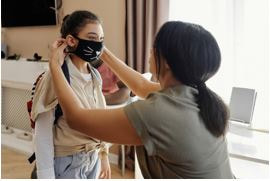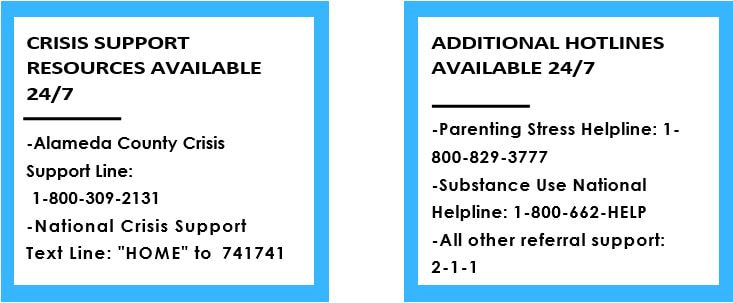• Validate the adjustment period: Being on campus and seeing people face-to-face will be disorienting--for students and staff alike! Some students may have a more difficult time adjusting and that is okay. Be ready to repeat the agenda, directions, COVID protocols, and other important announcements multiple times.
• Everyone will be experiencing some level of anxiety: Staff and students are stressed about safety protocols. Some students may experience separation anxiety from being away from their caregiver. All of us are adjusting to the return to campus. Incorporate calming rituals and routines, such as mindful moments and brain breaks, into the agenda.
• Focus on cultivating relationships: All students, even those who were most engaged with distance learning, need to feel they belong in your classroom and are safe. Allow for opportunities to hear from each student and for connection.
• Increase self-care practices throughout the day: You will be tired during this adjustment period. Remember to take care of yourself!
• Highlight moments of joy: Be on the lookout for acts of kindness by students. Write down things that made you laugh during the day. Practice gratitude at the end of the day.
• Close your eyes: You may not be able to actually take a break from your surroundings but allow your brain to take a little “mini-vacation” by thinking about a calming scene or destination.
• Gratitude: Change your focus to the positive by being grateful for something in this moment.
• Breathe: Stop what you’re doing and take a deep breath. Do not underestimate the power of a deep breath.
• Mindful eating: take a second to focus on different textures and flavors as you snack/eat.
• Technology time-out: Set a timer for 30 seconds, turn off all technology and sit in silence. This may be difficult at first and that's okay.
What are some of your favorite one-minute self-care strategies?
This practice is 9 minutes long. Incorporate this practice as many times as you need during the week. Challenge yourself to try it at least one time and notice how you feel afterwards.
| Conflicts in the classroom can be really stressful moments for not only those involved in the conflict, but for those observing the conflict. When our brains notice a conflict, it goes into that flight-fight-freeze response. The RELATE Model is one strategy you can incorporate in your classroom to help students regulate, stay calm, minimize punitive disciplinary measures, and ensure everyone feels safe to continue learning. |
Extend: Invite the student to talk about the situation. If they are not ready yet, let them know you will be available when they are ready in a non-judgmental tone.
Listen: Let the student share without interruption what happened and what they are thinking or feeling. Affirm what they share and use active listening skills. Use reflective statements like "This is what I hear you saying:___" to check for accuracy.
Articulate: When it is your turn to share, keep it impact focused. (Ex: "I am worried that:___"). Do not shame, embarrass, or gaslight the student for their behavior.
Talk It Out: Work together to find a mutual understanding of what happened. Remember, you don’t have to agree on everything. The goal is to find understanding.
Emerge: Decide together how you will emerge from this. What is your path forward? Identify concrete action steps, such as agreeing to leave any negative feelings behind, establishing boundaries, or making a plan to prevent this conflict from happening again in the future.
**If the conflict involved multiple students, this model can be used as part of a restorative justice circle. Ask a colleague to support in the facilitation of the space.










 RSS Feed
RSS Feed